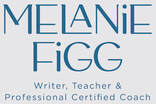|
For the past few years, I've shared with you some of the best books I read in the previous year. 2023 was a tough year for me. In January, my husband and I began a pretty grueling divorce process that took most of the year. In August, a pinched nerve in my neck had me take a deep dive into physical pain and months of physical therapy. And in the final months of 2023, my 98-year-old father moved into assisted living and died on December 30.
During the past year, 64 books were my escape and my companions, my guides, distractions, salves, and anchors. There were a few clunkers I won't bother to mention, but here's my love song to books and writing... COMFORT READS: My focus sucked in 2023, and I was anxious a lot, to say the least. So I re-read one of my favorite novels, A Prayer for Owen Meany by John Irving. It's one of the most perfectly structured novels ever. It has tons of laugh-out-loud scenes balanced with some of the most tender moments I've ever read. I also re-read a bunch of easy but good mysteries set in Baltimore by Laura Lippman, The Uncoupling by Meg Wolitzer, and took it easy with Kate DiCamillo's The Beatryce Prophecy. READING FOR MY JOB AS A WRITING COACH: I am always reading books that I can recommend to my clients, or that help me do my job better. Two great examples: Refuse To De Done by Matt Bell and The Creative ACT: A Way of Being by Rick Rubin. A terrific book on craft, and a true love story to the short story is A Swim in the Pond in the Rain: In Which Four Russians give a Master Class on Writing, Reading and Life by George Saunders. Saunders takes you through a handful of class short stories - teaching you how they work, charm, and astound the reader as he goes. One of my favorite books! AUDIO BOOKS: During the worst moments of back pain when I couldn't really hold books, I tried some fiction via audio book. While the books were great - The Vaster Wilds by Lauren Groff, The Dutch House by Ann Patchett, Galatea by Madeline Miller, The Museum of Extraordinary Things by Alice Hoffman, and The Puppets of Spelhorst by Kate DiCamillo - I confirmed that I hate listening to novels. FICTION: Some talented novelists distracted and relaxed me with their good storytelling and writing: Claire Keegan's Foster, Lynn Steger Strong's Flight, Celeste Ng's Our Missing Hearts, Emma Straub's This Time Tomorrow, Rebecca Makkai's I Have Some Questions for You, Anne Youngson's Meet Me at the Museum, and Ann Patchett's Tom Lake. I hated the focus on the white guys and the FBI in Killers of the Flower Moon, but loved the novel Mean Spirit, which Chickasaw poet and novelist Linda Hogan wrote about the Osage people and those same murders way back in 1991. Check it out. ESSAYS & MEMOIR: I re-read the classic The Boys of My Youth by Jo Ann Beard and loved The Crane Wife by CJ Hauser (after the title essay went viral during COVID), and West with the Night by Beryl Markham (what a life she led!). Poet Maggie Smith's memoir about her divorce, You Could Make This Place Beautiful, helped articulate a lot of what I was feeling last year. I also really liked Peggy Orenstein's funny and super informative Unraveling: What I Learned about Life Shearing Sheep, Dying Wool, and Making the World's Ugliest Sweater, Juliet Paterson's Sinkhole, and Margaret Kimball's graphic memoir, And Now I Spill the Family Secrets. And I absolutely loved Sabrina Orah Mark's memoir in essays about fairy tales, Happily. EXCEPTIONAL LITERARY FICTION: Thanks to my writing buddy, there were a few windows where I tackled some challenging new authors, and was thrilled to discover the astonishing 1952 novel, Forbidden Notebook, by the Italian-Cubist feminist writer, Alda de Cespedes. Wow wow wow. And after Annie Ernaux won the 2022 Nobel Prize, I dug into her rich opus that re-imagines memoir, memory, history, and language with A Girl's Story, Happening, and The Years. A lot more women writers need to be translated into English. POETRY: I am always reading poetry to find new books to teach, or just enjoy. Some of my favorite collections last year were: A Raft of Grief by Chelsea Rathburn, West: A Translation by Paisley Rekdal, White Blood: A Lyric of Virginia by Kiki Petrosino, Wilder by Claire Wahmanholm, Deborah Keenan's The Saint of Everything, Selected Poems of Gwendolyn Brooks, and three books by Louse Gluck (R.I.P.). I'm glad 2023 is over, and I'm proud of how I got through it. I hope you're doing well, and 2024 is a space of peace and possibility for all of us. What did you read last year? Recently I had an illuminating discussion with a private coaching client of mine, and realized what could be behind some writers' dread of the blank page. First, let me ask you this: who holds the pen when you journal?
Is it the calm, grounded, wise self? Or is it often the anxious self, the worrier, the list maker, the nasty bully? I recently threw out years of old journals - it was a very liberating moment! Inside most of those journals were pages of worry, self-doubt, tired grievances, even self-hatred. Lots of meanness spewed out in an attempt to "clear my head" that often left me feeling cranked up and vaguely crappy. Me on auto-pilot, with my Inner Critic holding the pen. Of course, if I am writing consciously about a tough issue, with the Wise Self holding the pen, it's a whole other ballgame. Then the journal, and journal writing, becomes a place of insight, clarity, and calm. But if I'm rehashing things that annoy me, or rehearsing the zinger I wish I had delivered way back then... (anyone else do that?), then I'm just grinding over outdated narratives about me and my life that don't uplift me at all. Those journal entries keep me stuck, and angry, and all kinds of yuck. So...if that sounds at all familiar to you, then you gotta ask yourself: if I let the Inner Critic have the pen for a blank journal page, then who is the me who greets the blank page to write a poem, essay, or chapter of my novel? No wonder you don't want to sit down and write! It's like passing the dog leash to Cruella De Vil. Who wants that? But what if you invited your Wise Self to your writing time? What if you gave them the pen, and told the Inner Critic to sit in the time-out chair? What might happen then? How might your writing time become easier, more rewarding, and something you want to return to the next day? Something to think about, friends. It's time for me to jump on my soapbox and spread the word about all the great books I read last year. In 2021, I read 61 books. In 2022, I read 108 books! A personal best - and a record I'm not going to sweat to break in 2023.
Yep, 61 to 108 is a serious jump. Some of that is the 15 poetry books I read in August for The Sealey Challenge (less than half of its lofty goal to read a collection each day!), and some is when I hit the skids with post-Covid malaise and read a lot from Kate DiCamillo's wonderful opus for children. Part of what makes my annual reading challenge so fun is that I track all my books in StoryGraph. StoryGraph is terrific. It's free, created by an African-American woman, and it has really cool features like insightful stats and clear graphics about your reading habits. It also offers terrific recommendations and isn't owned by Amazon like Goodreads. (To move all your data from Goodreads to StoryGraph takes just a couple of easy clicks!) At some point last year, I stumbled upon this great list of books by native and indigenous writers from Elissa Washuta, and enjoyed a lot of great reads - many of which are in this newsletter. Here, in no particular order, are some of my favorites recent reads that I highly recommend. POETRY: The Wild Fox of Yemen by Threa Almontaser, If They Come for Us by Fatimah Asghar, 1919 by Eve Ewing, Indigo by Ellen Bass, Girls are Coming Out of the Woods by Tishani Doshi, Averno by Louise Gluck, A Line of Driftwood: The Ada Blackjack Story by Diane Glancy, Now Do You Know Where You Are by Dana Levin, and Come the Slumberless to the Land of Nod by Traci Brimhall. Perhaps the book that moved me the most was Prognosis by Minneapolis poet Jim Moore, written during quarantine and the efforts for justice after the murder of George Floyd. MEMOIR/ESSAY: My favorites: Safekeeping by Agibail Thomas is a gorgeous memoir that I wish I'd read years ago, as it opens up ways to tell the story of a life in small, pungent, often funny vignettes; her memoir A Three-Dog Life is great, too. The Witch of Eye by Kathryn Nuernberger is so smart and lovely, with each essay investigating the "horrors inflicted on so-called "witches" of the past." These Precious Days by the wonderful Ann Patchett is a collection of essays rooted in Covid lockdown that offer comfort, deep wisdom, and humor. A very strong and engaging collection of essays about gun violence and gun culture is Carry: A Memoir of Survival on Stolen Land by Toni Jensen. The 1619 Project: A New Origin Story edited by Nikole Hannah-Jones expands on the New York Times magazine initiative; each stand-alone chapter is written by a guest writer. If you need something smart and light, with moments of wry wisdom, there is Happy Go Lucky and A Carnival of Snackery: Diaries (2003-2020) by David Sedaris. Other good ones are Emily Bernard's essay collection, Black Is The Body and Don't Let Me Be Lonely: An American Lyric by the incomparable Claudia Rankine. I finally read Braiding Sweetgrass: Indigenous Wisdom, Scientific Knowledge, and the Teachings of Plants by botanist Robin Wall Kimmerer and don't know why I waited - each stand-alone essay is fascinating! My favorites were about maple sugar trees, sweetgrass, cattails, and about how to make black ash baskets starting from choosing the tree. CRAFT: The Art of Revision by Peter Ho Davies is a game-changer! (See my review.) For years, I've led writing workshops using the groundbreaking process of Liz Lerman. This year, she explores the process she created decades ago in Critique is Creative: The Critical Response Process in Theory and Action by Liz Lerman and John Borstel. Lerman's process is also referenced in The Anti-Racist Writing Workshop by Felicia Rose Chavez, which is full of insight and practical advice. Puzzled about reading poetry and want an easier way to appreciate poems? Then check out the latest book by Stephanie Burt: Don't Read Poetry: A Book about How to Read Poems. Burt "dispels preconceptions about poetry and explains how poems speak to one another - and how they can speak to our lives." With the simple comparison of poetry and music "she shows readers how to find more poems once they have some poems they like." You would never say "I don't get music" the way people say "I don't get poetry." With music, you might like jazz not hiphop, or prefer heavy metal to disco. Poetry is vast like music, too. So, Burt shows you how to find poems with which you'll connect and enjoy. For a wonderful memoir/craft book, check out Melissa Febos' Body Work: The Radical Power of Personal Narrative in which she uses her profound thinking and usual badass candor to give us permission to tell our stories, write about sex and our bodies with courage and honesty. Shapes of Native Nonfiction: Collected Essays by Contemporary Writers edited by Elissa Washuta and Theresa Warburton is a great read and resource. FICTION: The Hired Man by Aminatta Forna may be one of my favorite novels of the past decade; Forna can write about the effects of war with such subtlety and insight (her book Happiness is terrific, too). As a lap swimmer at my local Y, I really enjoyed The Swimmers by Julie Otsuka. The page-turner, The Break by Katherena Vermette, explored sexual violence and its aftermath, and included so many memorable female characters. Lauren Groff's short stories in Florida are sometimes grim but all pretty great. I also loved The Dutch House by Anne Patchett, Matrix by Lauren Groff, The Sentence by Louise Erdrich, and Music for Wartime: stories by Rebecca Makkai. Thank god for funny novels! I thoroughly enjoyed the funny and charming Lessons in Chemistry by Bonnie Garmus, The From-Aways by C.J. Hauser, and Remarkably Bright Creatures by Shelby Van Pelt - in which part of the story is told in the voice of an octopus! I also loved Now is Not the Time to Panic by Kevin Wilson (author of the absolutely awesome, Nothing to See Here about a set of combustible twins!) There aren't enough superlatives for Kate DiCamillo. In 2022, I read a handful of her delightful books for young people. I especially loved The Magician's Elephant, Flora and Ulysses,(it's about a superhero pet squirrel who types poetry!) The Tiger Rising, and Because of Winn Dixie. If you don't know her work, I am sorry your life is so drab...so just go get them all, and let their awesome illustrations and hilarious and poignant stories do their work on you. If you are giving books as gifts this year, I encourage you to buy them from your local independent bookstore when you're able to do so. What have you been reading? This post originally appeared as s blog post for The Loft Literary Center. Below in its entirety:
Sometimes as writers we work on small things—some flash fiction, an essay or short story. We do a pretty good job managing our time and finishing our work. But then there are times when our dreams are bigger, and we want to tackle a large writing project—like a novel or a memoir. How do we prepare for the marathon versus the sprints we’re used to? First, don’t panic. And don’t chicken out! Don't get daunted by the size of it or the newness of it. You’ve done this before, just in smaller pieces. Yes, there are new things to learn with a big project, but you’re skilled, and ready, and willing to learn. With a bit of planning, and a wider lens, you can see your large writing projects over the finish line, too. You just need to get organized a bit. Organize your space If you’re able, create a dedicated work space for your project. Do you have a home office or a desk in a corner of a room where you can leave your notebook open? If space is tight, no worries. If you work on your laptop at the kitchen table, is there a bookshelf or a box where you can keep your notes and resources? The key here is a gather all your materials in one place to keep your project visible and accessible. Once you have your physical space organized, it’s time to organize your headspace! Those three pounds of gray matter . . . often the biggest barrier for writers. It’s important to begin to mute the negative self-talk soundtrack in your head so you can stay balanced and in action. The goal isn’t to kill off your inner critics but rather to befriend them, to turn the volume down, to learn how to work with them. (For instance, your Perfectionist needs to be muted while you’re generating your first drafts, but she’ll come in very handy when it’s time to copyedit and proofread during the final laps.) As you can imagine, the bulk of my work with writers is focused on managing inner critics and other resistances. It takes commitment, mindfulness, and compassion to rein in your inner critics, but it’s essential to your mental health, the longevity of your writing career, and the quality of your daily life. Organize your time Obviously, if you’re going to write a book, you need to make time to do the work. This step takes some basic math, realistic planning, and steady accountability to stay on track—it also requires dealing with reality. A writing schedule only works if it works in your life situation. Realistic planning keeps goals do-able and overwhelm in check. How many words/pages have you got so far, and how many do you need for a first draft? Ok, got it. Now, how many pages/words can you write in a week? Do the math based on your real life, not an ideal week, because that never happens. Then, set a general goal (“I’ll have a first draft done by the end of the summer” or whatever), so the finish line is in sight. You might also need some tough love to look at where you are spending some of your time. We all waste time, but now some of that time can be spent on your project. A few shifts in your routine can help you build your writing habits over time. If you want to reach a big writing goal, then you’ll need to schedule time in your week to do the work. Without “writing appointments” in your calendar, you won’t reach your goal. You just won’t. It’s like the saying goes: A goal without a plan is just a dream. There will be ups and downs. What matters most is returning your butt to the chair, building community to help when you’re discouraged, and having a ridiculous, badass faith in yourself and your work. Organize your project Once you’ve set realistic goals and are building the habit of organizing your schedule to include specific writing times, you will want to continue to organize the project itself. This is something that you might have already done, or sort of done, but it’s essential to staying motivated, managing overwhelm, and using your time well. There’s no right way to tackle a big writing project, but there are some things that help a lot:
The writing life can be a wicked rollercoaster, but you can do this. Isn’t it time to give it a serious try? The clock is ticking, and your book—and its readers—are waiting. If revision is re-vision, a re-seeing, we might understand it specifically as a shift from seeing our work through the eyes of its writer to seeing our work through the eyes of the reader.” I’ve been thinking and reading a lot about revision lately. This spring I taught three classes with a focus on revision, and I have been working 1-1 with a poet in Dubai. A key book that’s been refining my thinking is Peter Ho Davies’ The Art of Revision. (Read an excerpt.) Sometimes reading craft books can feel like a slog, but Davies’ writing is direct, clear, and funny. At the size of a large postcard, and just 170 pages, this tiny gem packs the punch of a senior seminar. It’s practical, smart, and inspiring: a game-changer for writers of all genres.
A few main points Davies makes in the book: 1.Create a revision mindset—The practice of revision requires curiosity, a willingness to try, a patience to explore. We often jump into the weeds too soon and start nitpicking over diction or punctuation. What a way to kill the buzz! Instead, what if you approached revision as an act of discovery and exploration? An experiment to learn more about this thing you’re interested in, or to uncover a deeper meaning? 2.Revision is a thought experiment—Davies compares revising fiction to conducting a science experiment. Remember those from school? You’d come up with a hypothesis and test it? That’s what writers do. Like scientists, they follow leads to see what they can learn. Too many new writers dismiss this exploration as a waste of time, whereas scientists see a disproven hypothesis as a good thing! It gives them information, it eliminates a path and re-directs us in a fresh direction, as we take what we learned along with us. Those extra scenes or chapters you wrote taught you a bunch of things, and got you where you ended up with more confidence. Win-win. 3.Revision is about expansion—Revision is not just chopping. I can’t say this enough to my students. If writing is thinking (and we know that it is), then revision is expanding the text to discover what else is there, to gather more information, then contracting again when you’ve learned what there was to learn. Davies refers to the very draft itself as breathing—and I love that. It reminds us that our writing is a living this, so hacking away at it is not a great idea. As Davies notes, “We might understand expansion as the form patience takes on the page.” Brilliant! With practical suggestions and helpful tips, Davies addresses a lot in this book, including:
I could go on, but I hope you’re getting the picture! In addition to The Art of Revision, I want to share with you two wonderful online magazines that are determined to take the mystery out of revision: Draft for prose writers, and the terrific underbelly for poets. Both journals show different versions of a piece, and include the author’s commentary about the revision process. I hope you’ll check them out and let me know what you think! Book Nerds! Here's a bunch of great books to read and a great new way to track your reading1/1/2022 I’ve always been a glass-half-empty kind of girl. Maybe one of the few good things that has come out of this time of isolation has been more time to read. In 2020, I read 51 books. This year, I read 61 books (or 16,825 pages - thank you, StoryGraph!) This year I moved from Goodreads to StoryGraph. I was a pretty spotty user of Goodreads, but after I read more and more troubling news about Goodreads (no surprise, since it's owned by Amazon!), I made the move, in a quick hot minute, and I am so happy. StoryGraph is free, and it has tons of cool features that a book-geek will love. StoryGraph has a recommendations feature that is robust and spot-on. It has really insightful stats and clear graphics about your reading habits and it has a great and fair system for reviews (unlike the shenanigans going on at Goodreads). Last but not least, StoryGraph was founded by an African-American woman – who doesn’t want to support her team rather than give over more personal data to Bezos?
The one thing that is missing right now on StoryGraph is a critical mass of people. So, come join me, so we can build a big community on StoryGraph and support them! (Sadly, I made absolutely no money from that 100% honest, but very long bit, I just did about StoryGraph). Here are some of those 61 books that I highly recommend: Poetry: OBIT by Victoria Chang, 1919 by Eve Ewing, The Renunciations by Donika Kelly, Nox by Anne Carson, and Girls Like Us by Elizabeth Hazen. The most lovely, important collection I read was Prognosis by Jim Moore, one of my first poetry teacher. Like many of you, I have been struggling a lot these past two years, and Jim’s poems have helped me feel less alone. I haven't written much about the pandemic, or the heartbreak of watching my Minneapolis burn after George Floyd was murdered. These gentle, funny and soulful poems let me enter these recent times in a way that takes note, tends to our fears and grief, and offers a hope that’s neither simplistic nor superficial. They are small prayers for all of us, these poems. Memoir/Essay: I read a lot of wonderful memoirs and creative nonfiction last year. One of my favorites was The Clearing: a memoir of art, family and mental health by Samantha Clark. I search high and low for books that tell the story of mental illness with accuracy and respect, and I was also very moved by Clark’s visual art. Other good reads were Girlhood essays by Melissa Febos (I can’t wait for her craft book, Body Work, coming out in March 2022), and The Suicide Index by Joan Wickersham. Two of my favorites were a wonderful mix of memoir and literary criticism: All the Lives We Ever Lived: Seeking Solace in Virginia Woolf by Katharine Smyth and A Ghost in the Throat by Doireann Ni Ghriofa. Craft: Literary magazines, writing programs, and publishers are beginning to address their own biased practices. There’s work for us all to do - in our work and in our classrooms. I attended some great training sessions rooted in the work of two pivotal books: The Anti-Racist Writing Workshop by Felicia Rose Chavez and Craft in the Real World by Matthew Salesses. Other craft books to recommend are A Swim in a Pond in the Rain by George Saunders, Getting to the Truth: the Craft and Practice of Writing Creative Nonfiction from the good folks at Hippocampus, and The Business of Being a Writer by Jane Friedman. Fiction: These four novels are truly awesome: True Story by Kate Reed Perry, Happiness by Aminatta Forna, The Haunting of Hill House and We Have Always Lived in the Castle by Shirley Jackson. Over the past two years, I’ve read every book of Laura Lippman – a smart Baltimorean who writes good novels and thrillers as well as her fun Tess Monaghan series. I'm already halfway through my first book of 2022 - These Precious Days, the wonderful new collection of essays by Ann Patchett. What are you reading? What are the questions your work is trying to answer?
All writers and artists have subjects and themes they explore over and over in their work. For the nature sculptor, Andy Goldsworthy (whose work I love), one theme he explores is the ephemeral, so he explores dissolution and time in a variety of mediums—building ice sculptures to watch them melt at dawn, braiding sticks into a dam to watch them flow downriver. In this way, he discovers more about the parameters of his materials, and his inquiries. For me, some of the themes I’m interested in are memory, the body, absence, and identity. (Let’s just call them what they are, ok? Slight obsessions!) I explore my obsessions in different ways, from different angles, and in different combinations in my writing. I’m often drawn to certain topics because they let me explore these themes in a new or different way. For example, I’m always curious about phantom limbs—they’re the perfect confluence of my interests in the body, absence, and identity. So, writing a poem in the voice of someone grappling with a phantom limb lets me explore these issues deeper, in a new way—expanding my understanding, like holding an object up to the light and turning it in all directions. What are the ideas or topics that you return to over and over in your writing? My guess is that you already have a pretty good idea what your obsessions are, and what questions your work is trying to answer, but you might not articulated them before. Give it a try…it will help you shape and focus your work, and make you feel more like an intentional, serious writer. Your short story or novel—what is it about? Notice I didn’t ask for a summary of the plot. What are the bigger questions you’re exploring through your storytelling? Most of us know Shirley Jackson’s classic short story, The Lottery. What were the bigger questions she was exploring in that story? Some stuff she was exploring: how people don’t question traditions or the larger group, what conformity does to the individual, what is the role of violence in society. What issues are you grappling with in your fiction? What are your characters dealing with? By digging deep into the larger issues you’re exploring in your work, you will naturally stretch your thinking, and in doing so, complicate and strengthen your work, and deepen its impact. For a poet, focusing your poems on a couple of themes is a great way to build a cohesive collection—whether a full-length book or a smaller chapbook. Once you know what your themes are, then you can see how poems that might seem unrelated (a poem about a phantom limb, an elegy for my mother, a poem about the gaps between music notes) can fit well in one poetry collection, talking to each other about those subjects in different ways. This ability to look objectively at your work is important for all writers, no matter what genre. Being able to discuss your work and its themes, and why they intrigue you, is a key element of an Artist Statement. Most applications—to attend a graduate program or writing residency, or to win a grant—will ask you to write a brief Artist’s Statement. New writers often get the Artist Statement all wrong—they think it’s a resume, or a biography with flowery language. (No!) One thing that separates a serious writer from a beginner is their ability to talk about their work, to articulate their themes, explain their creative process, and to connect their creative inquiry to larger issues. Panelists are looking for this level of professionalism in an application. Most of life’s questions don’t have easy answers--what does it mean to be a true friend? how does systemic racism take hold of a young girl and her doll?—but they make great stories. These questions inspired E.B. White and Toni Morrison to pull us into their creative inquiries as they wrote to better understand Charlotte and Pecola, and discovered some answers (which probably led to more questions) along the way. Waiting to find the answer before you start to write? You can hear how wonky that plan is. Many writers think they have to have it all figured out—the last line of the poem, the emotional nooks and crannies of every chapter—before they’ll begin. (I am not saying don’t outline your novel!) But trust me, it is during the act of writing in which you figure stuff out. So, don’t wait until you’ve forgiven your mother to write that memoir—instead, write about your mother from every angle, write about your relationship, describe memories and conversations, write about that unforgivable thing. And in the process of writing about all of that, you will discover the answers to the how and why of forgiveness. Not sure how your questions connect to become a bigger inquiry? Ask the work itself. I often tell my students and private clients to interview their poem, or piece of prose. Open your journal and write down these questions--What are you trying to tell me? What do you need me to do next?--and let the writing answer. When the writing is done with its answer, ask it the other question. Over and over, back and forth, digging deeper until you get to something surprising, or have a new insight to guide your revision. With a piece I’m working on now, I’m trying to organize a number of different essays and poems into one hybrid memoir. My memoir is exploring girlhood, and violence (among other things). Some of the questions I’m asking my work are: How does this piece relate to my themes of girlhood and lack of safety? If it doesn’t, it probably doesn’t belong here. I have a piece about contagion in 18th century New England, and another about environmental poisoning--what are the connections there? What roles do science, and secrecy play in these subjects? Perhaps I’ve found a strong angle to follow by including this in the collection. And so the experimentation continues. With a sense of play and curiosity, I take stabs at answering these questions by freewriting in my journal. As I explore the similarities and points of departure, new connections get made that guide me toward the next draft. Those connections can also become seams in one specific piece, as I build this patchwork of fragments into a cohesive essay. Already know the answer before you’ve even begun? Then don’t bother writing that thing! Seriously. Either your answer is too obvious (the birthing ground for clichés!), or your question isn’t big enough. That’s what Robert Frost was getting at when he said, “no surprise for the writer, no surprise for the reader.” If your writing’s question isn’t compelling to you, how will your search for the answer be interesting enough to keep you energized through a handful of drafts? How will it keep the reader’s attention? Yes, your questions may change, or evolve. Life changes (becoming a parent, watching your parents age, losing a loved one) or engaging in social issues often prompt new questions, take our writing lives in new directions. That’s a wonderful thing. Don’t be afraid to ask the juicy, messy questions. The point isn’t to have all the answers. The point is to ask questions that encourage you to dig deep, that scare you a little bit, that stir your curiosity, that lead your creative self from one clue to the next, enjoying the search all along the way. We've almost made it through three weeks of Shelter-in-Place in Maryland - kids are home from school and we're learning how to manage the new world of physical distancing.
I prefer the term "physical distancing" over "social distancing" because it's more accurate, and if anything, we need to find more creative ways to "close the gap" and connect socially with others during these uncertain times. I've been making more "check in" calls to family members. What's a way you're increasing your social connections? What's something new you might try? Another way to think about the term "social distancing" is giving people in your life more space. Everyone is dealing with a lot - more stress, collective grief, lots of uncertainty. People deal with stuff in different ways. So, maybe you get an email from a co-worker that is extra snippy. What if you practiced some "social distancing" with them and just gave them some space with their anxiety, and cut them a bit of slack? What if you chose not to shoot off your own "reply all" and took a few breathes instead? It's rough out there, and everyone is doing the best they can. Where could you make some space, or cut someone some slack right now? (That person might be you!) Wherever you are with this pandemic is OK. Personally, I'm day to day, sometimes hour by hour! It's exhausting. All the more reason to be patient with ourselves and others. Limit your news consumption. Take time to rest and re-charge. This pandemic has got a lot of us thinking about what it might look like on the other side of this - both the gloom and the good.
What good changes might come out of this? Better hand washing, for sure. Hopefully more companies supporting telework as an option. More creative ways to work together to solve problems. (One of my favorite Win-Win solutions is our local shelter, Shepherd's Table, is partnering with local restaurants to keep restaurants open and feed the homeless by having people donate and buy meals.) Scaling back, sheltering in place, being forced to slow down - all this has begun to awaken something deep in us. We're seeing what really matters to us. Family. Friends. Being kind to others. Less social media, more nature. Offering help to strangers. Spending our work life doing something that matters. What do you want the next ten years of your life to look like? How might you shift your life to be more in line with your values, your real passions? Some of you have been circling that inquiry for a while. Maybe now is a good time to begin exploring some new options.
I'm offering a deep 30% discount on 6-month coaching packages right now. If you started exploring and stretching your wings now, what might your view be by the end of September? Contact me for more details or just go ahead and schedule a complimentary conversation 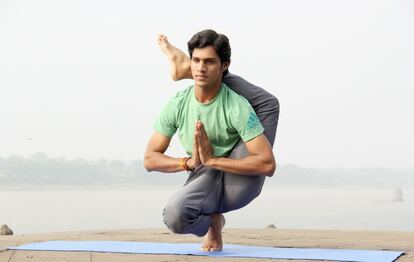 I go to my weekly yoga class to get stronger, heal injuries, improve my balance, chill the F out, and get out of my head. I’ve been surprised that it’s also where I practice being kind to myself. I’m pretty hard on myself, I know that much. But on my mat, I’m concentrating on good form or holding plank pose; I don’t have time for my mind to wander. I just count. I often fail at a pose that the rest of the room can do, but my good teacher reminds us to not go there, and I listen. I just notice my tight hips. I go gentle with my old back injury. My yoga mat is where I don’t compare myself to others—despite the fact that there are some pretty pretzels in the room. This is progress, people! I compare myself to others all the time—it’s a bad habit and a source of much of my suffering—but not in yoga class. I see them—the other writers—on Facebook and in press releases, cashing in their prize money, smiling at their huge mailing lists and Twitter crowds. I know they’re rising at 6am and writing effortlessly until they go do their perfect lives. They rough me up, these writers in my head. What pulled me back from the doom today was remembering who I was on the mat this morning. That Me-Not-Comparing...she’s just doing her thing despite Miss Rubber Band in front of me, or the elegant older woman in the corner. Me-Not-Comparing sees them but doesn’t get hooked. I don’t know why, I don’t try to figure it out. But they land as possibilities for me, guideposts not measuring sticks. On the yoga mat, I get a glimpse of a different part of myself. She’s not tangled up in striving and comparison—she’s got some space, a thin teal rectangle, to practice a different way to be. What if I greeted the blank page like my yoga mat? A place to practice, paying attention only to what I’m doing at the moment, stretching and curious, doing just a short regular routine, focused and forgiving? I’m gonna see how this goes. What could your blank page become? An early spring plot to your Gardener Self? A new city to your Traveler Self? |
Melanie FiggI'm a writer, teacher and certified professional coach. I'm gonna see if writing an occasional blog post is a thing I like doing and want to continue doing. Archives
January 2024
Categories |
Copyright © 2024 Figg Coaching and Consulting LLC
Based in Washington, DC with service worldwide
Website Design by Leit Studio
Based in Washington, DC with service worldwide
Website Design by Leit Studio



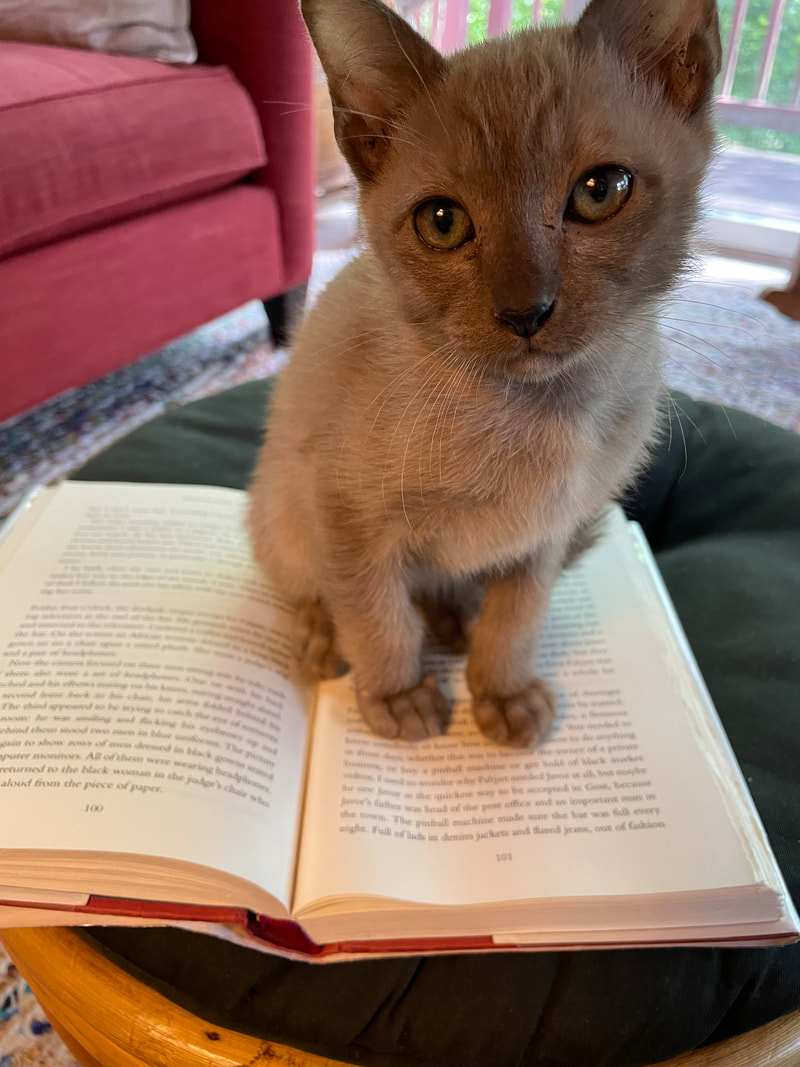


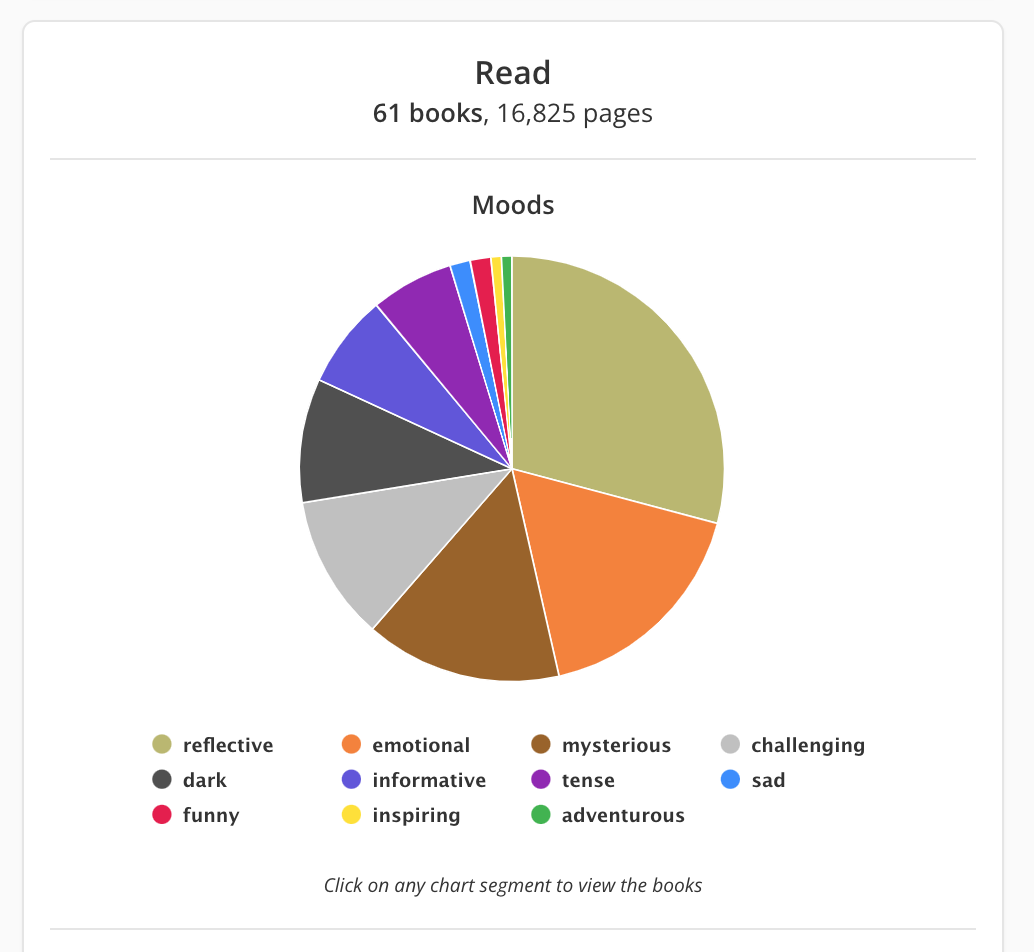
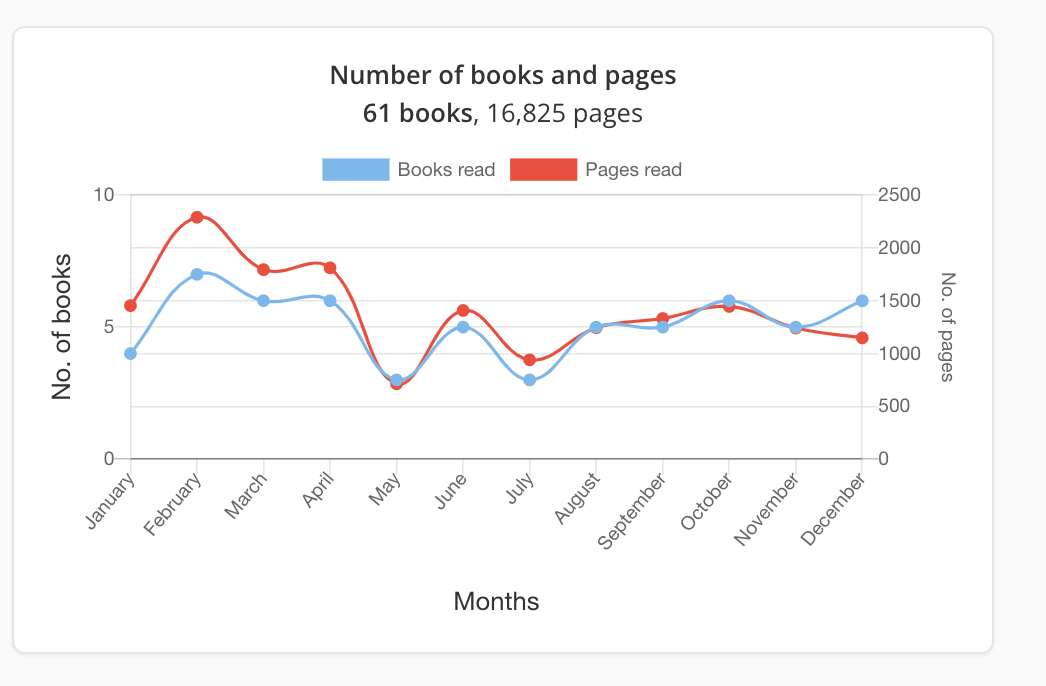
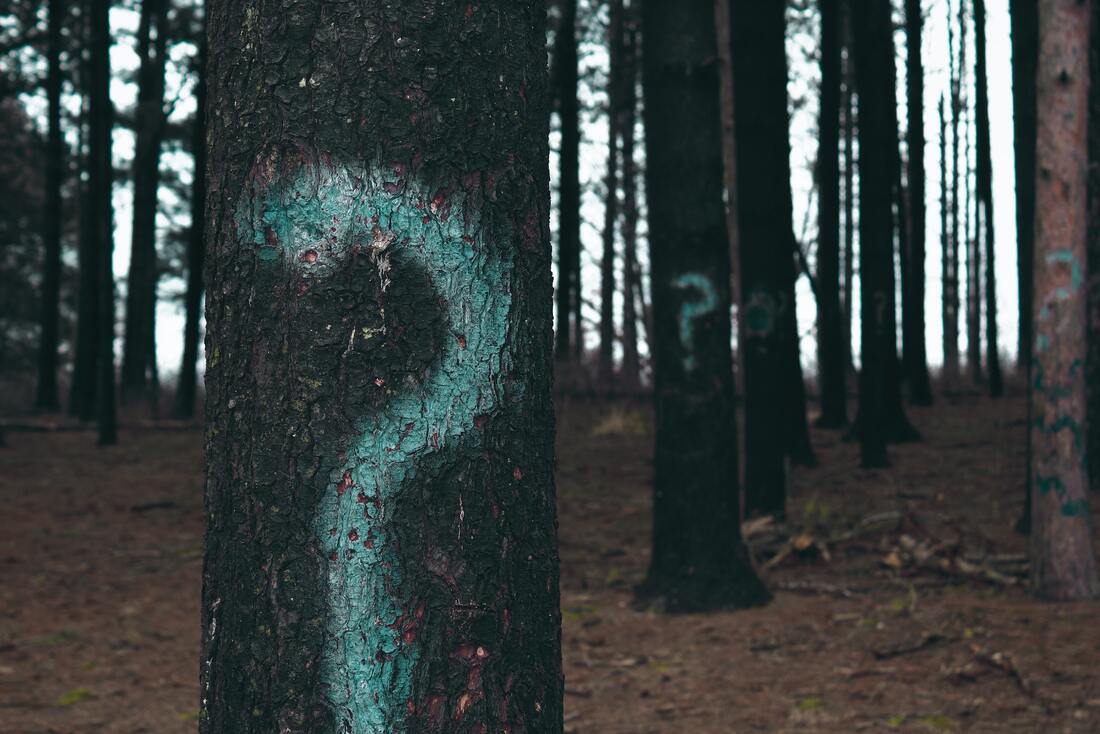


 RSS Feed
RSS Feed

